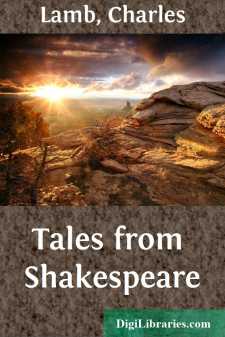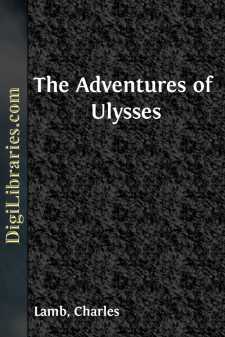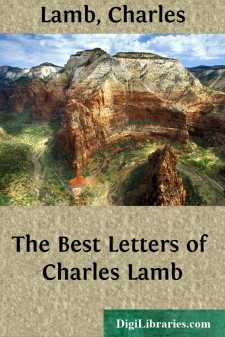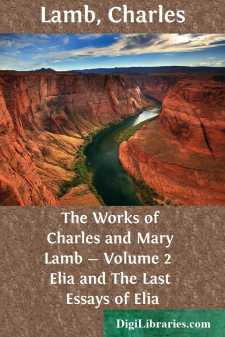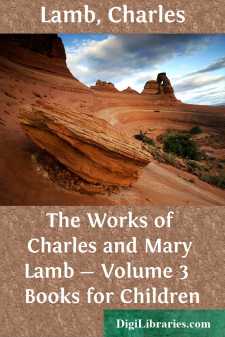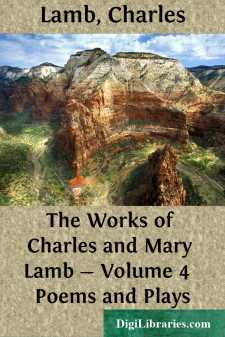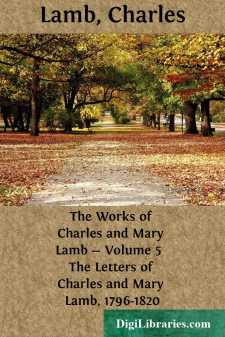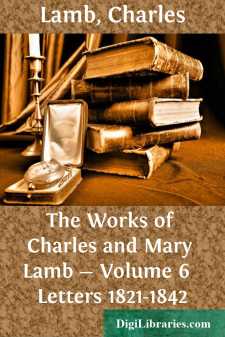Categories
- Antiques & Collectibles 13
- Architecture 36
- Art 48
- Bibles 22
- Biography & Autobiography 813
- Body, Mind & Spirit 142
- Business & Economics 28
- Children's Books 15
- Children's Fiction 12
- Computers 4
- Cooking 94
- Crafts & Hobbies 4
- Drama 346
- Education 46
- Family & Relationships 57
- Fiction 11828
- Games 19
- Gardening 17
- Health & Fitness 34
- History 1377
- House & Home 1
- Humor 147
- Juvenile Fiction 1873
- Juvenile Nonfiction 202
- Language Arts & Disciplines 88
- Law 16
- Literary Collections 686
- Literary Criticism 179
- Mathematics 13
- Medical 41
- Music 40
- Nature 179
- Non-Classifiable 1768
- Performing Arts 7
- Periodicals 1453
- Philosophy 64
- Photography 2
- Poetry 896
- Political Science 203
- Psychology 42
- Reference 154
- Religion 513
- Science 126
- Self-Help 84
- Social Science 81
- Sports & Recreation 34
- Study Aids 3
- Technology & Engineering 59
- Transportation 23
- Travel 463
- True Crime 29
Charles Lamb
Charles Lamb (1775–1834) was an English essayist, poet, and antiquarian known for his wit and warmth in writing. He is best remembered for his essays collected in "Essays of Elia" and for co-authoring "Tales from Shakespeare" with his sister Mary Lamb. Lamb's personal life was marked by tragedy, including the responsibility of caring for his sister after she suffered a mental breakdown.
Author's Books:
Sort by:
by:
Charles Lamb
There was a certain island in the sea, the only inhabitants of which were an old man, whose name was Prospero, and his daughter Miranda, a very beautiful young lady. She came to this island so young, that she had no memory of having seen any other human face than her father's. They lived in a cave or cell, made out of a rock; it was divided into several apartments, one of which Prospero called his...
more...
by:
Charles Lamb
CHAPTER ONE The Cicons.—The Fruit of the Lotos-tree.—Polyphemus and the Cyclops.—The Kingdom of the Winds, and God Aeolus's Fatal Present.—TheLaestrygonian Man-eaters. This history tells of the wanderings of Ulysses and his followers in their return from Troy, after the destruction of that famous city of Asia by the Grecians. He was inflamed with a desire of seeing again, after a ten...
more...
by:
Charles Lamb
I. TO SAMUEL TAYLOR COLERIDGE. May 27, 1796. Dear Coleridge,вÐâMake yourself perfectly easy about May. I paid his bill when I sent your clothes. I was flush of money, and am so still to all the purposes of a single life; so give yourself no further concern about it. The money would be superfluous to me if I had it. When Southey becomes as modest as his predecessor, Milton, and publishes his...
more...
by:
Charles Lamb
ELIA (From the 1st Edition, 1823) THE SOUTH-SEA HOUSE Reader, in thy passage from the BankвÐâwhere thou hast been receiving thy half-yearly dividends (supposing thou art a lean annuitant like myself)вÐâto the Flower Pot, to secure a place for Dalston, or Shacklewell, or some other thy suburban retreat northerly,вÐâdidst thou never observe a melancholy looking, handsome,...
more...
by:
Charles Lamb
THE TEMPEST (By Mary Lamb) There was a certain island in the sea, the only inhabitants of which were an old man, whose name was Prospero, and his daughter Miranda, a very beautiful young lady. She came to this island so young, that she had no memory of having seen any other human face than her father's. They lived in a cave or cell, made out of a rock: it was divided into several apartments, one...
more...
by:
Charles Lamb
INTRODUCTION The earliest poem in this volume bears the date 1794, when Lamb was nineteen, the latest 1834, the year of his death; so that it covers an even longer period of his life than Vol. I.—the "Miscellaneous Prose." The chronological order which was strictly observed in that volume has been only partly observed in the following pages—since it seemed better to keep the plays together...
more...
by:
Charles Lamb
This edition of the correspondence of Charles and Mary Lamb contains 618 letters, of which 45 are by Mary Lamb alone. It is the only edition to contain all Mary Lamb's letters and also a reference to, or abstract of, every letter of Charles Lamb's that cannot, for reasons of copyright, be included. Canon Ainger's last edition contains 467 letters and the Every-man's Library Edition...
more...
by:
Charles Lamb
LETTER 264 CHARLES LAMB TO DOROTHY WORDSWORTH [P.M. January 8, 1821.] Mary perfectly approves of the appropriat'n of the feathers, and wishes them Peacocks for your fair niece's sake! Dear Miss Wordsworth, I had just written the above endearing words when Monkhouse tapped me on the shoulder with an invitation to cold goose pye, which I was not Bird of that sort enough to decline. Mrs. M. I am...
more...


